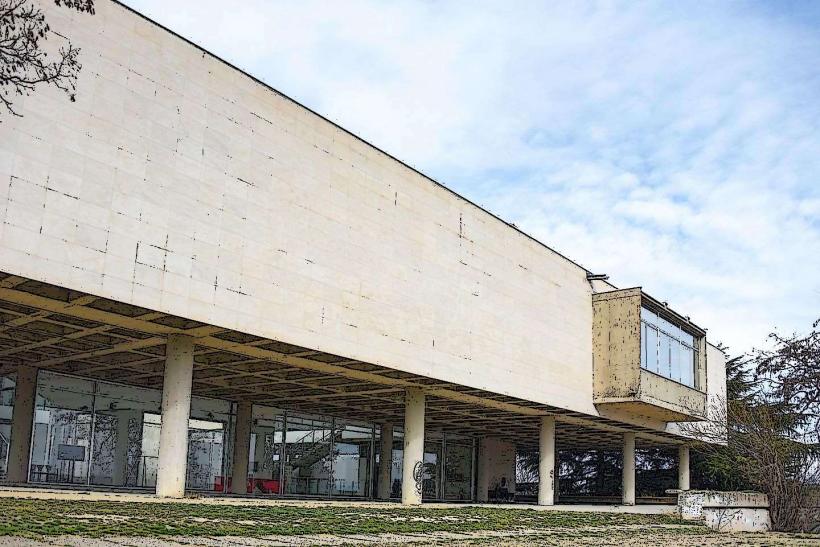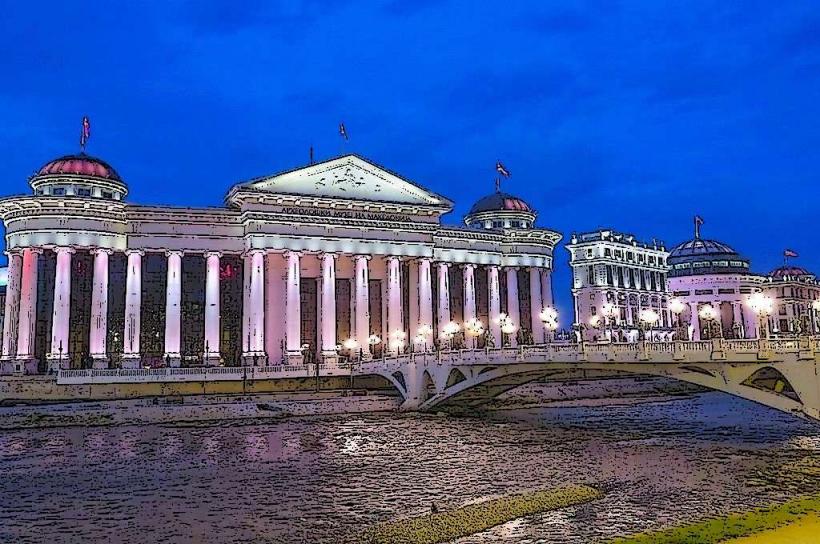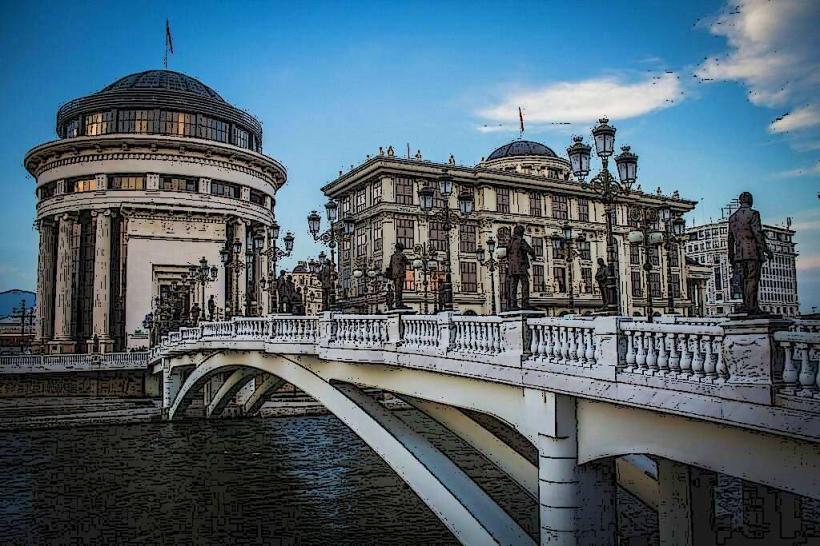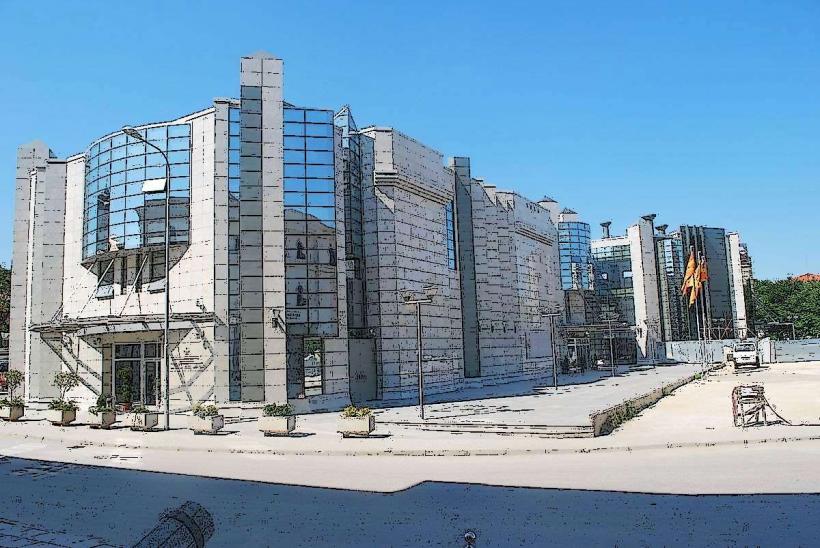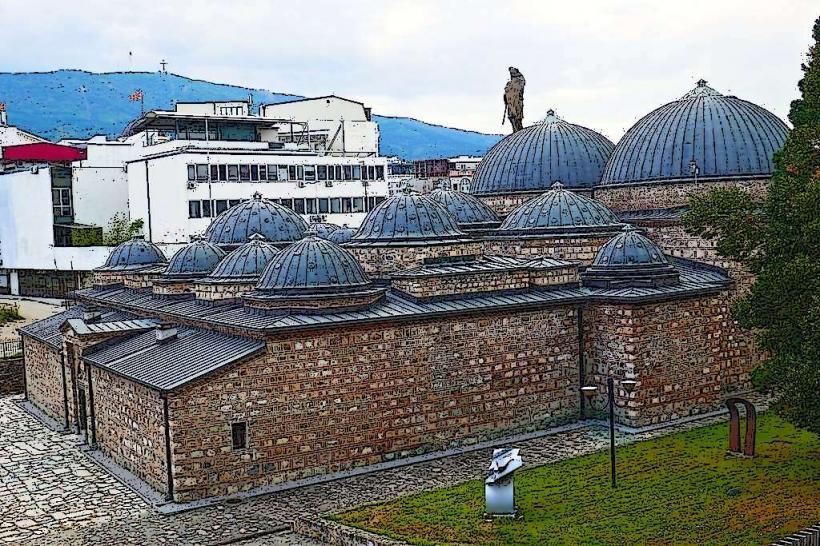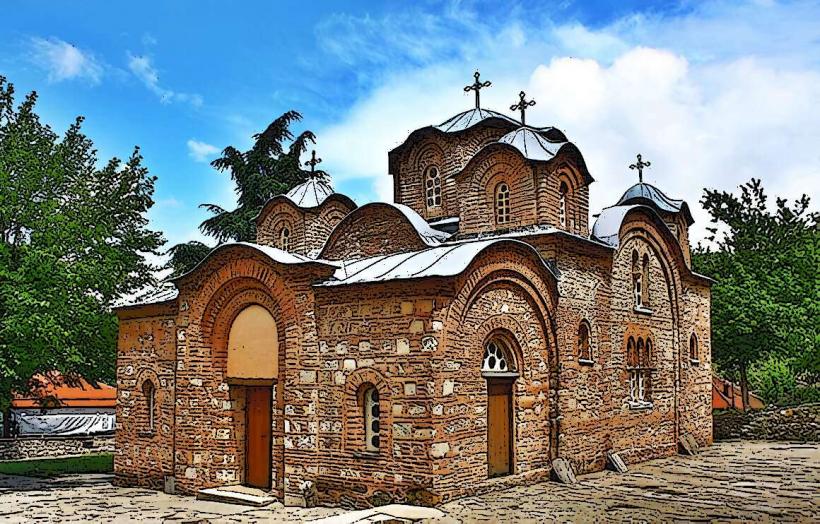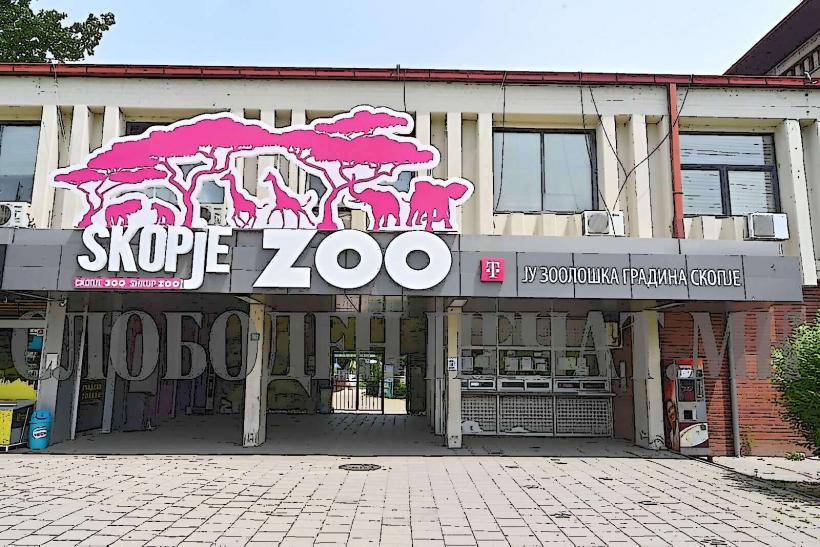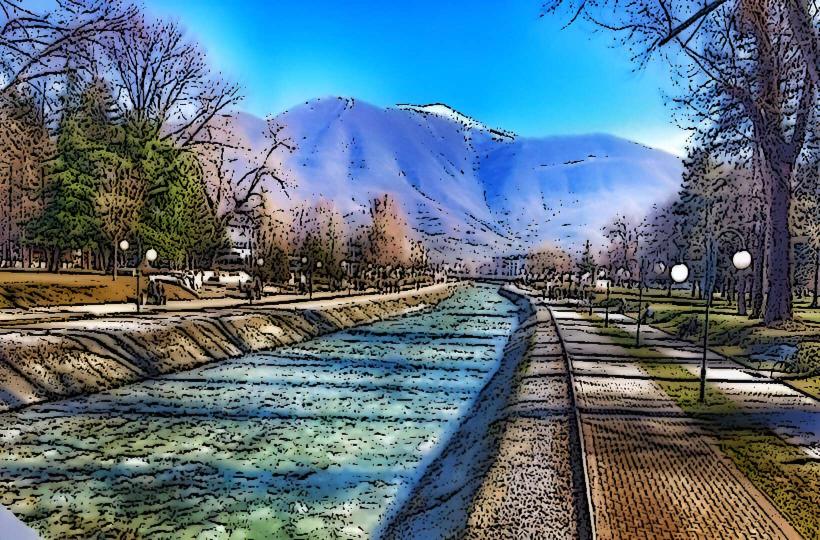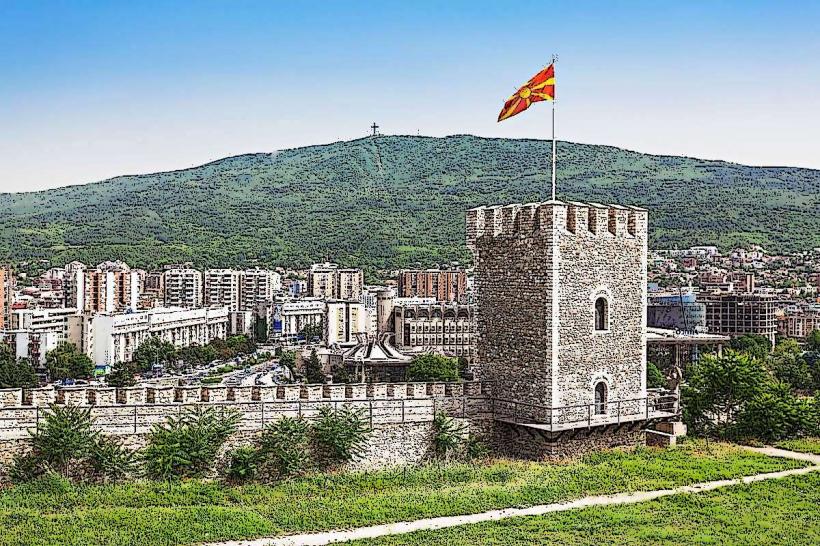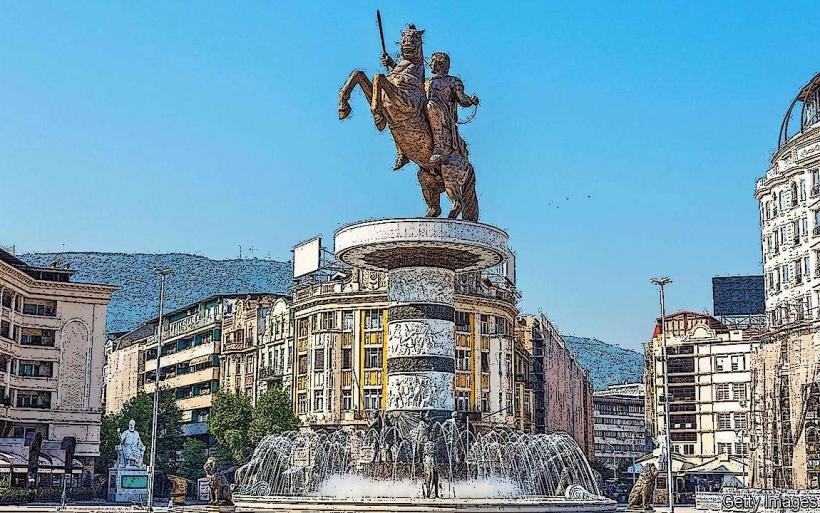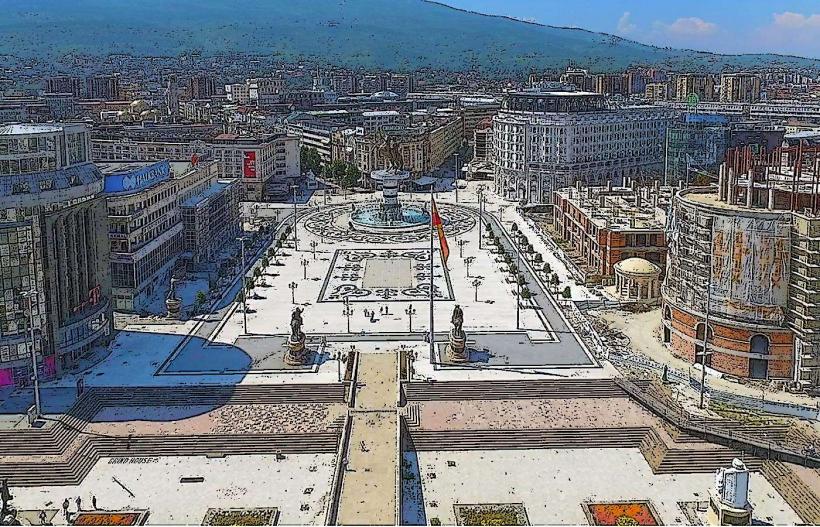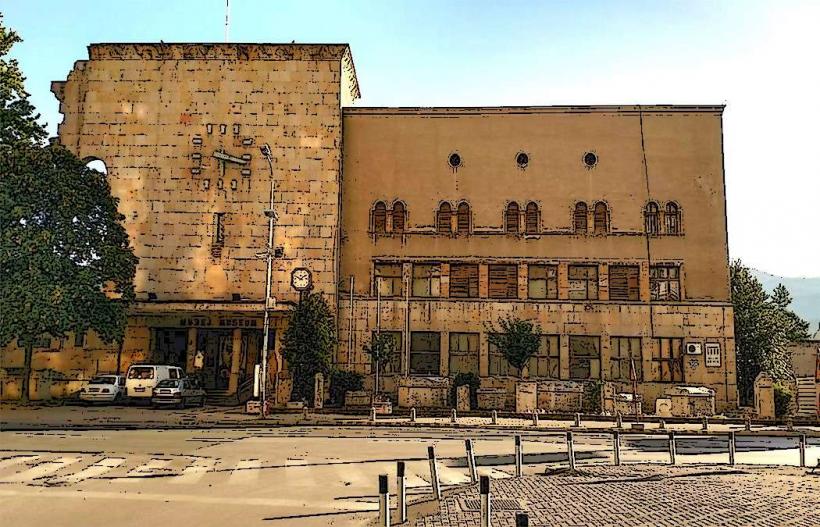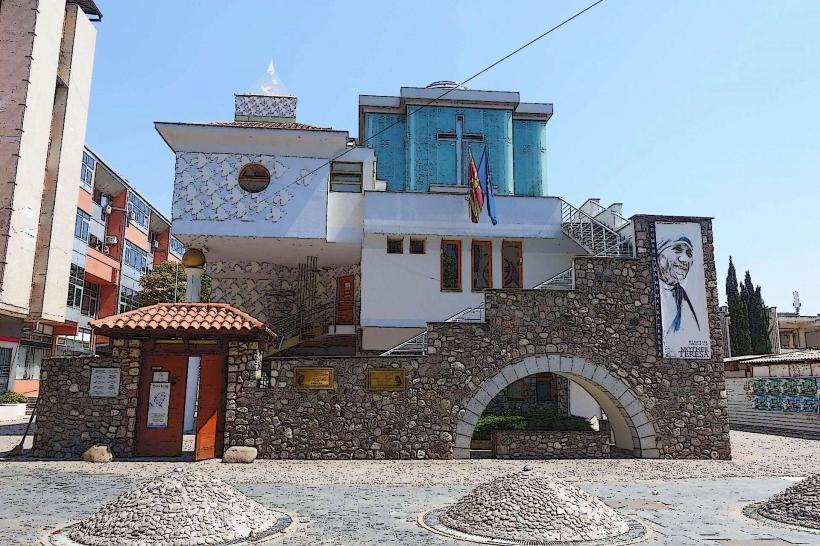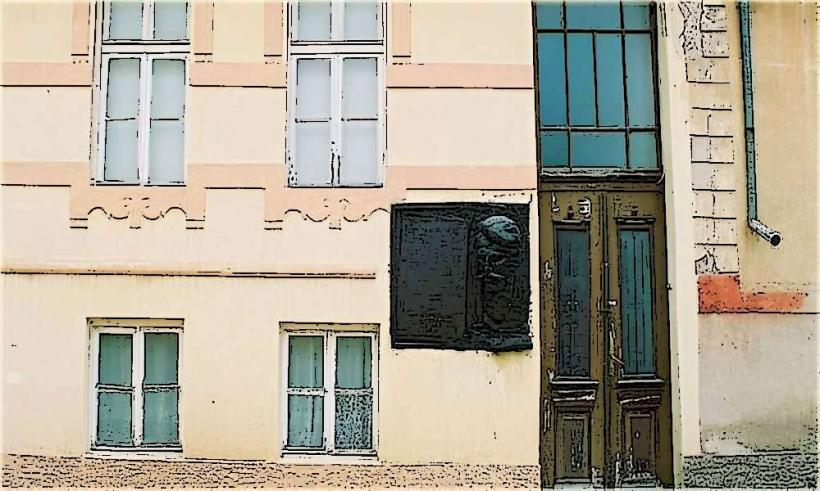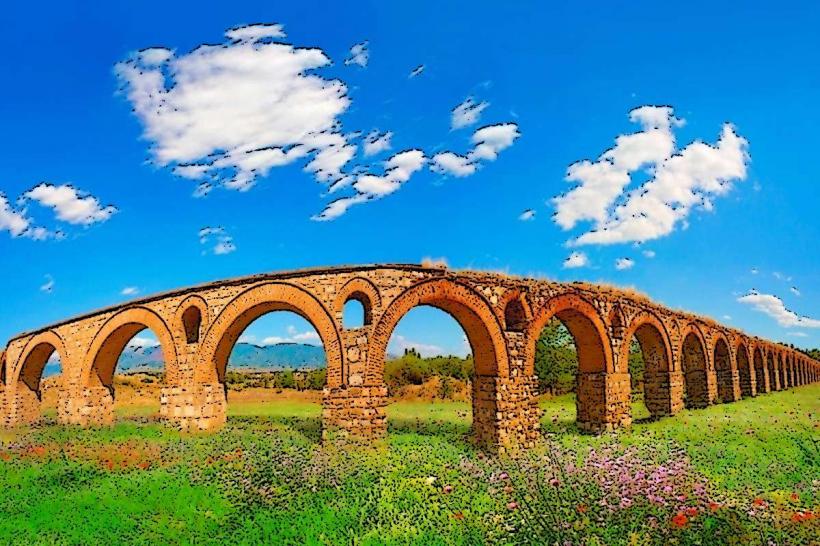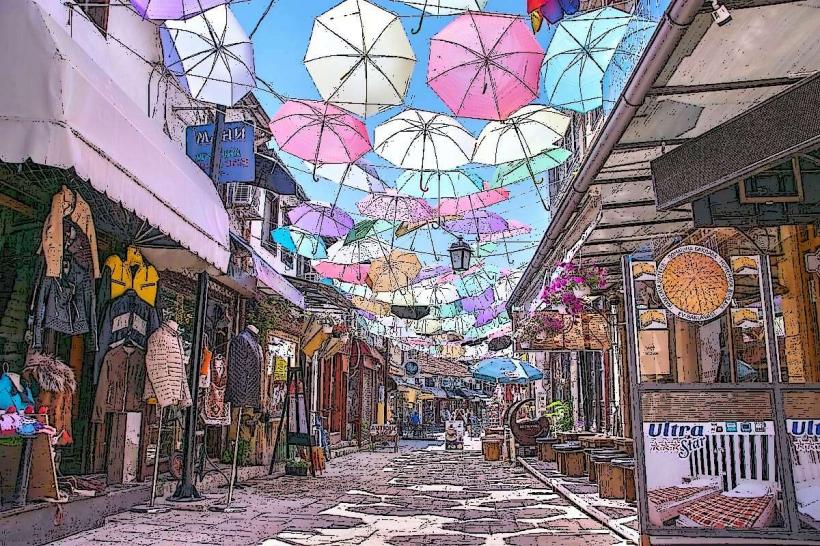Information
Landmark: Stone BridgeCity: Skopje
Country: North Macedonia
Continent: Europe
Stone Bridge, Skopje, North Macedonia, Europe
The Stone Bridge (Kamen Most) is a monumental masonry arch bridge spanning the Vardar River, connecting Macedonia Square to the Old Bazaar in central Skopje. It serves as the primary symbolic link between the city’s modern administrative center and its historical Ottoman district.
Visual Characteristics
The bridge is constructed from solid stone blocks and consists of 12 semicircular arches supported by massive piers. It measures 214 meters in length and approximately 6 meters in width. The structure features a distinct humpbacked silhouette, finished in pale travertine stone, and includes a central decorative watchtower (mحراب) that was reconstructed to mirror the original Ottoman design.
Location & Access Logistics
The bridge is a strictly pedestrian thoroughfare located at the northern edge of Macedonia Square. It is accessible via the "Ploshtad Makedonija" pedestrian zone or from the "Skanderbeg Square" entrance in the Old Bazaar. The nearest vehicle parking is the GTC shopping center garage, located 200 meters to the east. Public transit access is via the "Rekord" bus stop or "Centar" stops, both within a 5-minute walk.
Historical & Ecological Origin
The current structure was built on Roman foundations during the reign of Ottoman Sultan Mehmed II the Conqueror between 1451 and 1469. It is situated at a natural narrowing of the Vardar River, where the riverbed is composed of stable alluvial deposits. The bridge has survived numerous historical events, including the 1555 earthquake and the 1963 earthquake, though it underwent major structural restoration in the 1990s.
Key Highlights & Activities
Pedestrian transit between the northern and southern banks is the primary function. Visitors can observe the medieval stonework and the architectural transition from the central watchtower. Photography of the Vardar River and the surrounding "Skopje 2014" monuments is a frequent activity. The bridge also serves as a viewing platform for the river's seasonal flow variations.
Infrastructure & Amenities
The bridge is equipped with integrated stone benches and modern LED street lighting. There are no restrooms or vendors on the bridge itself; however, full urban amenities, including cafes and public toilets, are located immediately at both ends of the bridge. 5G mobile coverage is excellent across the entire span.
Best Time to Visit
The best time for photography is during the early morning for direct light on the eastern side or at sunset for silhouette shots against the western horizon. The bridge is accessible 24 hours a day. It is particularly striking at night when the arches are illuminated by floodlights reflected in the river.
Facts & Legends
A historical oddity is that the bridge was rigged with explosives by occupying forces during World War II, but it was spared destruction at the last moment when the city was liberated. A local legend suggests that the stability of the bridge is due to a "holy stone" placed in the central pier, which has protected it from the various floods and earthquakes that leveled most of the city's other structures.
Nearby Landmarks
Alexander the Great Monument: 0.05km South
Skopje Fortress (Kale): 0.4km North
Daut Pasha Hamam: 0.15km Northeast
Macedonia Square: 0.02km South
Museum of the Macedonian Struggle: 0.1km Northwest


